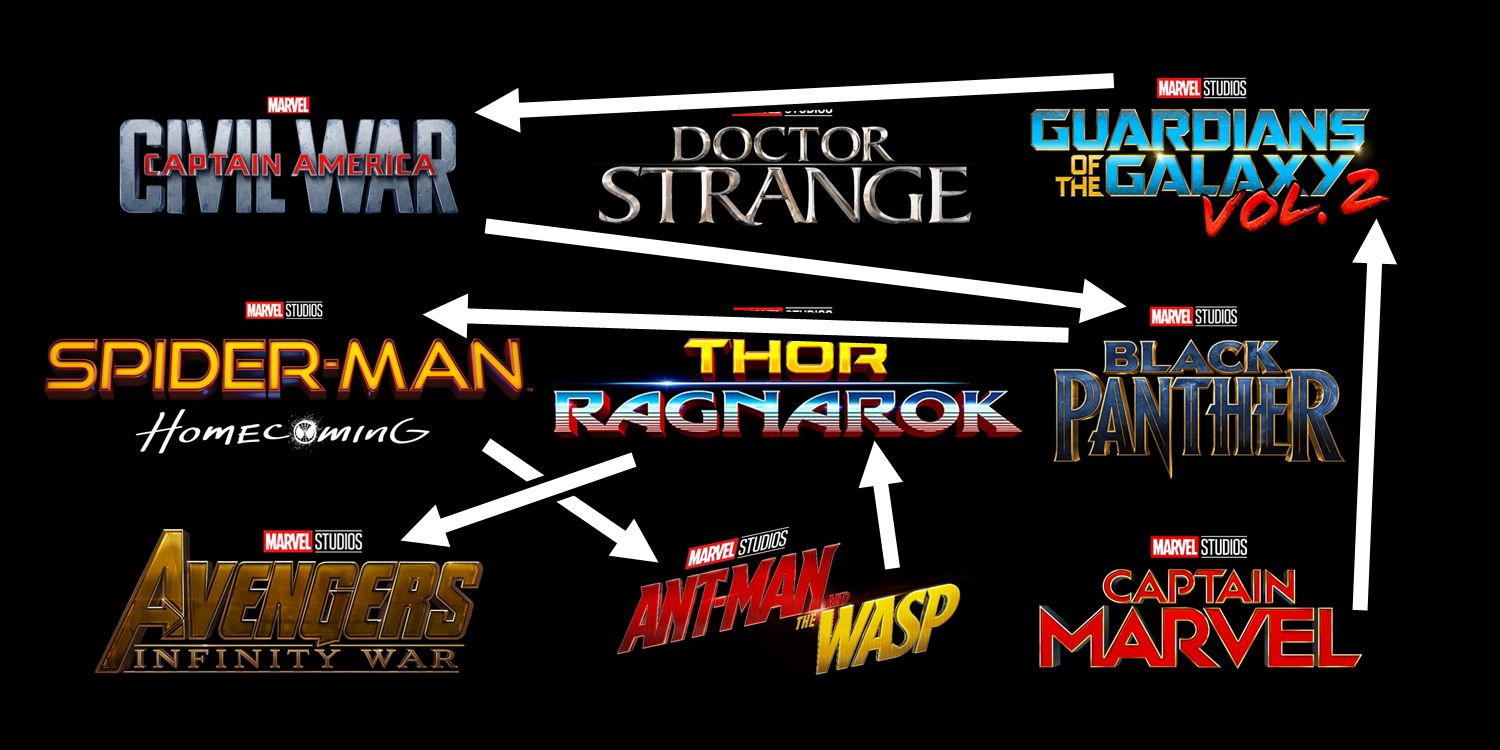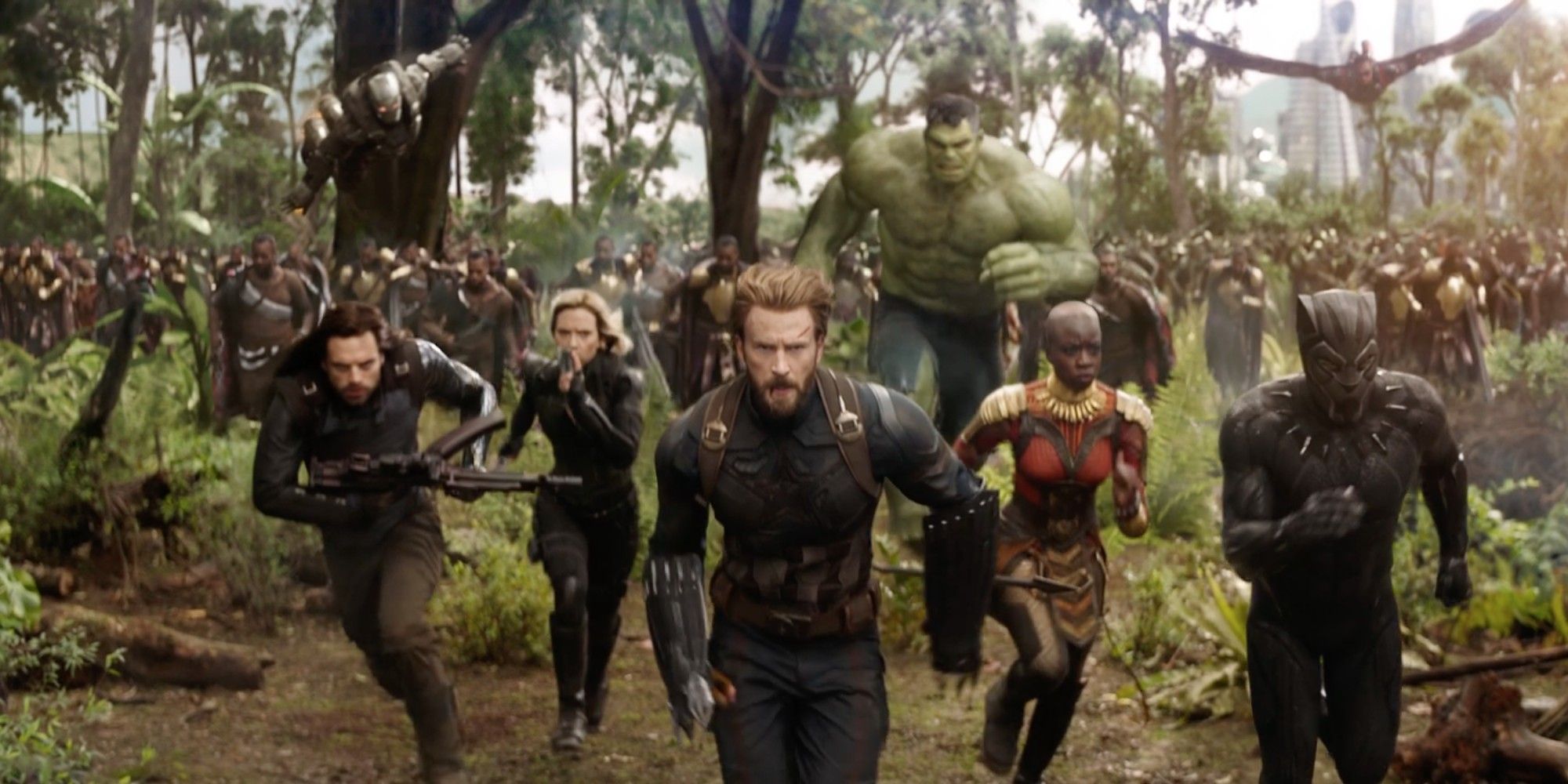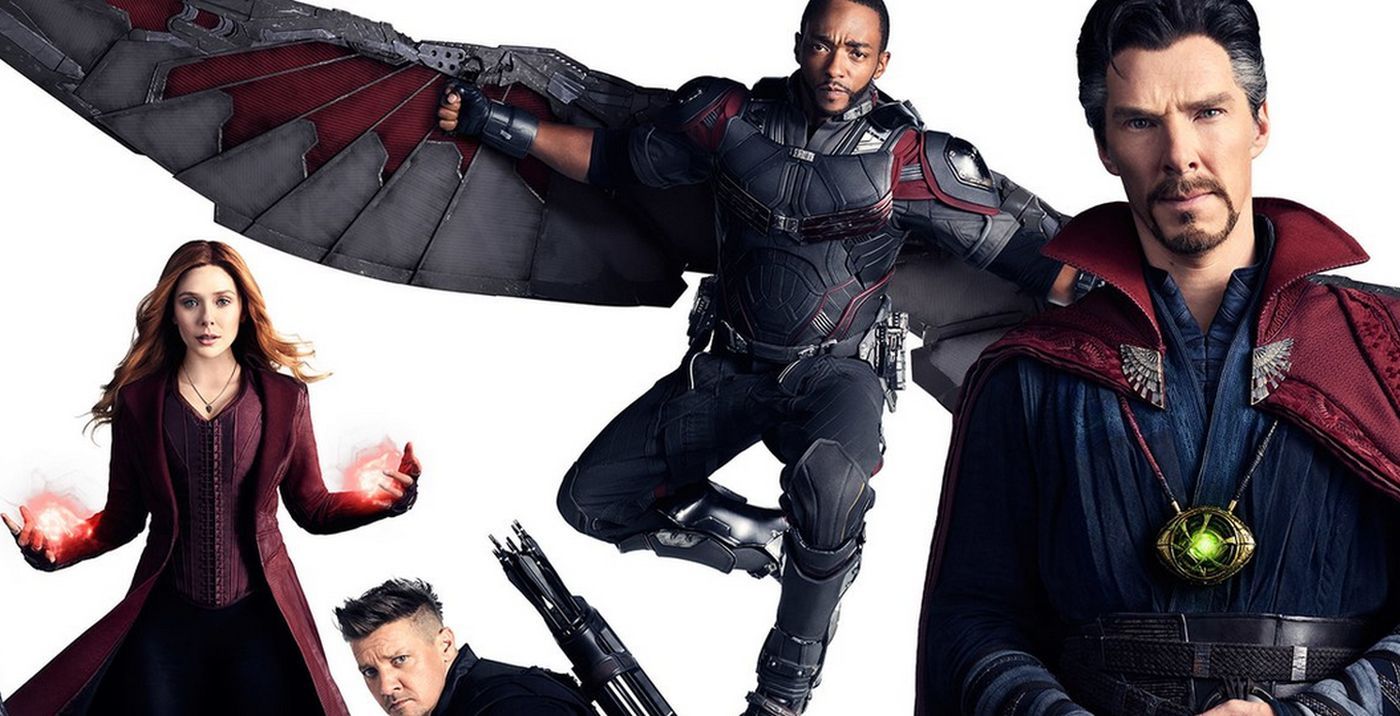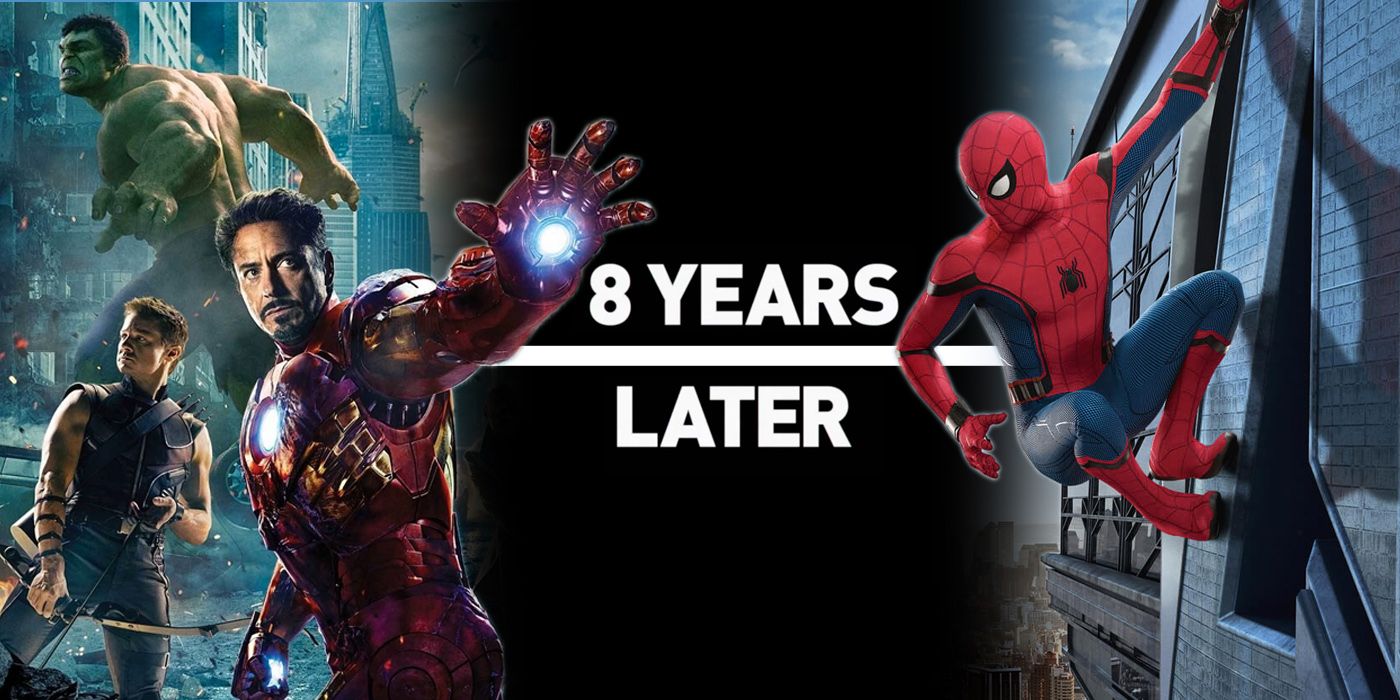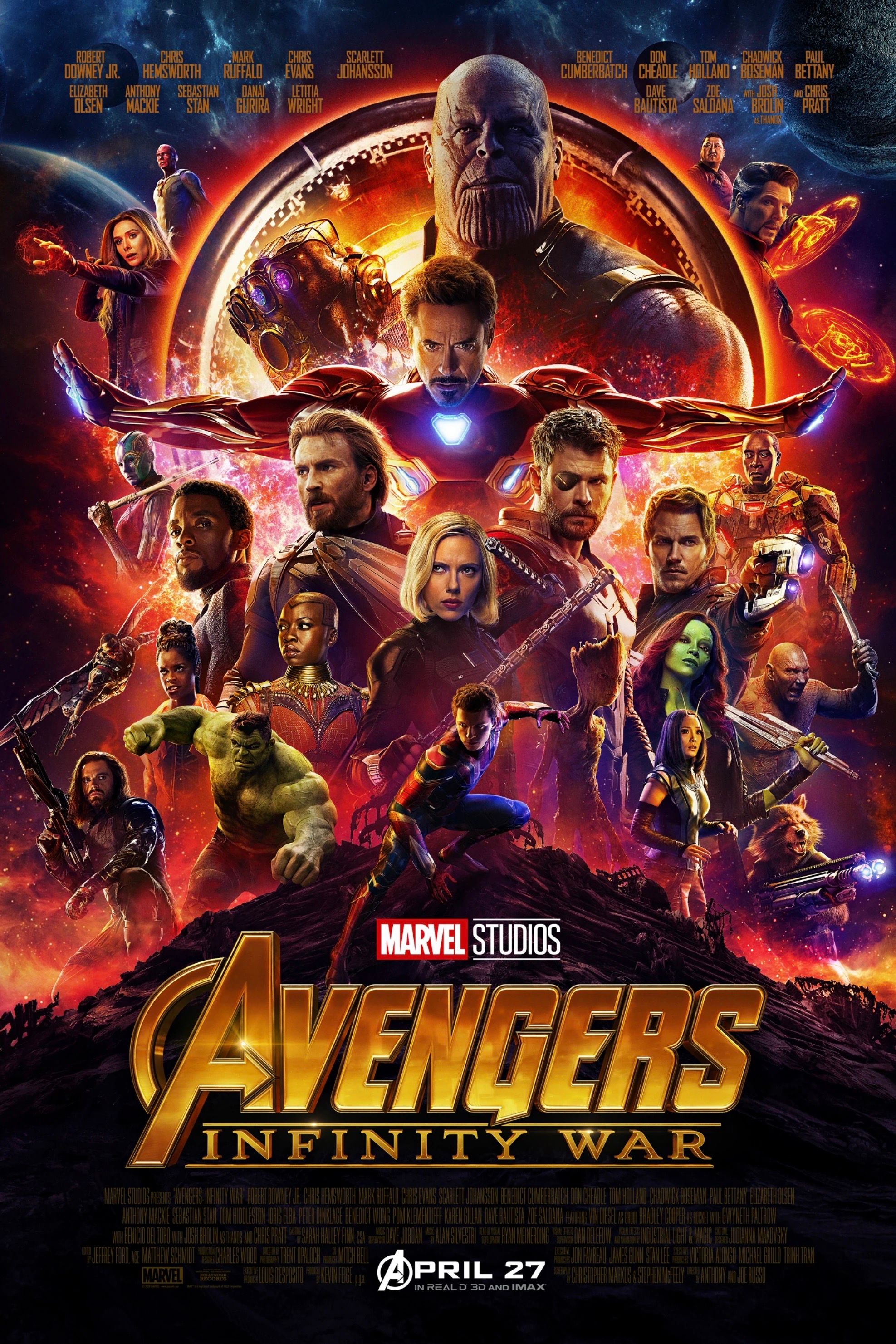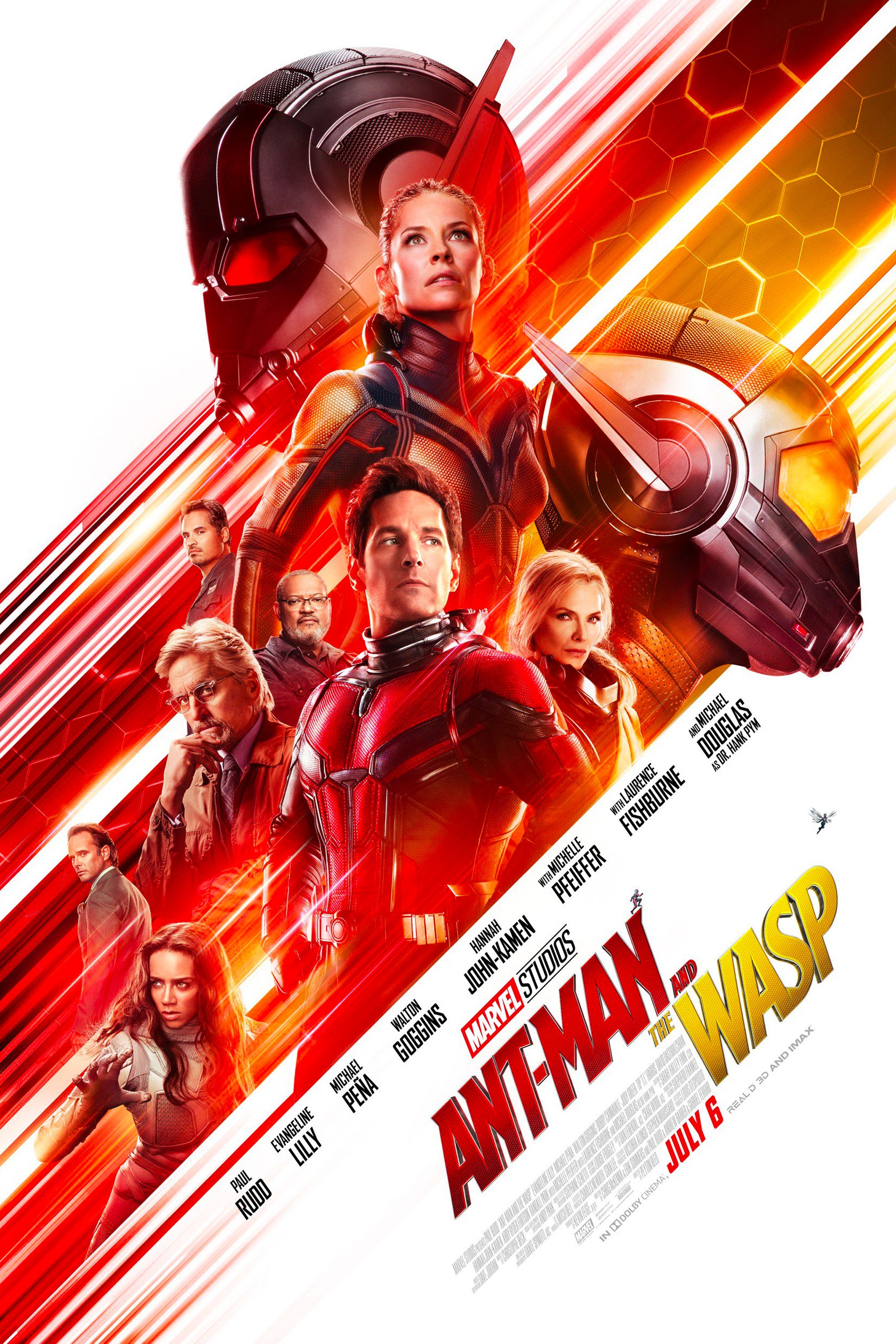The endgame of the Marvel Cinematic Universe's Phase 3 is in sight, but the timeline of the MCU is more confusing than ever. In fact, contrary to what Marvel themselves say, Phase 3 has been the most out-of-order run of movies yet.The studio has successfully evolved the Marvel style of movies, with Phase 3 has delivered some of the MCU's most highly-regarded films. And, to do so, they've treated the MCU's own official timeline a little flexibly. Watching the MCU films in order of release used to be a relatively linear exercise (the World War II-set Captain America: The First Avenger notwithstanding), but Phase 3 has really jumbled the continuity, with release order and timeline order almost completely different (creating some problems in the process).Related: Is It Possible For Marvel To Fix Their Broken Timeline?By summer of 2019 when Avengers 4 has released, it might be more advantageous for fans to watch the films of Phase 3 in chronological order rather than in order of release. Here's how Marvel Phase 3 should be watched in terms of when they are set in the MCU's timeline:This Page: MCU Phase 3 In Timeline Order
MCU Phase 3 In Timeline Order
The ordering of Phase 3 is variable on future releases, but based on everything we know, here's how it breaks down.
Captain Marvel: The film starring Brie Larson as the first solo Marvel female superhero to headline her own movie is set in the 1990s, explaining why the MCU at large has not heard from Carol Danvers so far. Captain Marvel finally joins the action in 'the present' in Avengers 4, but her solo film will be the ninth Phase 3 film released.
Guardians of the Galaxy, Vol. 2 is the third Phase 3 film, but it's actually set just a few months after the events of the first Guardians (set in 2014), which technically places it between Captain America: The Winter Soldier and Avengers: Age of Ultron. This primarily allowed the development of Baby Groot, and leads to a four-year jump for their appearance in Avengers: Infinity War. The shift didn't matter too much due to the sub-franchise's cosmic leanings, although Ego's attack on Earth did create a weird plot leap.
Read More: How Thor Meets Guardians of the Galaxy in Avengers: Infinity War
It's unclear quite when Doctor Strange - the second Phase 3 release - is set in the timeline. Stephen Strange was mentioned in The Winter Soldier, although it's unclear if that's a Sorcerer reference - the events of his movie seemingly contradict that. More problematic, it's not clear how much time passes in the film.but who knows when exactly it's set in the timeline? before the primary events of Phase 3 begin is best for sanity's sake - and means the mid-credits scene synchs up with Thor: Ragnarok years in the future.
Captain America: Civil War kicked Phase 3 off and is relatively straightforward - it's set a year after Avengers: Age of Ultron in-universe, so is presumably one of only a handful of films in the run actually set around its release date. There's some confusion over the year - Vision that cites it's been "eight years since Mr. Stark revealed himself as Iron Man" when in-universe it's less, although that may be reality-bleed (the film was released eight years after Iron Man.
Directly following Civil War is Black Panther, the sixth Phase 3 film and most recent release. It takes place roughly a week after T'Challa's revealed himself to the world - though the flashbacks within the film occur in 1992 - charting the early days of his rule (just don't question how Civil War's ending matches up).
Happening a little after is Spider-Man: Homecoming. It begins with Peter Parker's POV of being part of Civil War, but the main story begins 2 months later, which also sets it after Black Panther - meaning three movies released over two years apart are all set in the same period. This is also where the problems really began to arose: Homecoming begins with a flashback to the aftermath of the first Avengers movie "8 years ago", contradicting Vision's earlier line and expectations (The Avengers was assumed to be just four years prior).
Read More: Spider-Man: Homecoming Breaks The MCU Timeline
When Ant-Man & the Wasp - in reality, the eighth Phase 3 film - will be set is unclear, but based on the plot synopsis and trailer, it seems to also takes place in the aftermath of Civil War. How exactly this works will be revealed in July, but for now the fact Scott is under house arrest makes it seem safe this is set before Infinity War.
Thor: Ragnarok gets a bit of a pass timeline-wise - due to it being in totally new and separate realms, it could have feasibly been set anywhere. That said, we know Bruce Banner has been Hulk for two years, putting it at least that long after Age of Ultron and thus after the Civil War quartet. As the arrival of Thanos' ship in the post-credits scene suggests, Radnarok is brushing very close to Infinity War.
Finally, everything seems to be leading to Avengers: Infinity War, the seventh Phase 3 film, which - barring a major shock - will be followed by "end the MCU as we know it" Avengers 4. Avengers 4 is expected to involve time travel, however, so who knows how it will actually fit in.
Marvel Doesn't Care Too Much About Its Timeline
Around the release of Guardians of the Galaxy, Marvel Studios President Kevin Feige explained that MCU movies no longer overlapped like they did in Phase 1 (where Iron Man 2, The Incredible Hulk, and Thor all took place in the same week). However, we can clearly see that's not the case - Phase 3 is considerably more complicated than "Fury's Big Week", with the only movie being in the same position in terms of timeline and release being Avengers 4.
Related: Predicting The Next 20 MCU Movies After Avengers 4
The difference is that this time, the canon line-up isn't the focus - fans aren't really meant to look for concurrent clues, nor are Marvel as concerned with continuity. This is also why there's an increasing number of easily-avoidable "plot holes". Feige is, of course, aware of the discrepancies in the timeline, going as far as to promise that the studio will address the timeline issues within the shared universe's chronology. However, Feige has also disputed the theory that the films take place in the year they were released (despite plenty of evidence within the MCU that this has the case by and large).
Why The Marvel Timeline Is Such A Mess
It's only to be expected. As the MCU grows and continues to evolve, new developments naturally create problems. Spider-Man, for instance, is a relatively new inclusion to the MCU, one that they gladly made room for. Because they wanted Peter Parker to be a teenager in high school again, Marvel Studios had to engineer a way to slot Spidey into the existing universe and establish him as a potential Avenger. This led to the unofficial retcon that Peter was the boy in the Iron Man mask Tony Stark saved in Iron Man 2's concluding battle. It also led to incredibly confusing "eight years later" retcon in Homecoming. Peter will likely still be a high school student throughout the events of the next two Avengers movies and into the Spider-Man: Homecoming sequel, which is set to kick off Phase 4. Therefore, Peter - and this the timeline - can't move too far forward. Instead, Marvel Studios has been resetting their own past.
Infinity War is also a major touchstone as the entire MCU has been marching in lockstep to the ultimate confrontation with Thanos over the Infinity Stones and Gauntlet. For the past few years, Civil War has been the touchstone, with Avengers 3 a firm end goal of sorts. Even between it and Avengers 4 are the prior-set Ant-Man & The Wasp and Captain Marvel.
Above all, it feels most likely that the loosened reins of the timeline are a side effect of Marvel becoming more filmmaker-friendly and allowing their directors the freedom to put personal stamps on the MCU. Phase 3 has seen much more experimentation, with directors taking the basic tenets of the 'Marvel formula' and fusing it with other genres. James Gunn's Guardians of the Galaxy films are comedy-melodramas about finding family inextricably tied to the director's taste in music. Jon Watts made the Marvel version of a John Hughes teen movie with Spider-Man: Homecoming. Taika Waititi's comedic sensibilities powered his intergalactic 1980s-style romp Thor: Ragnarok. Ryan Coogler forged Wakanda into its own universe within the MCU while thoughtfully addressing the history of colonialism, isolationism, and global humanitarianism - along the way, he also made Black Panther into a Marvel-style James Bond film. The overwhelmingly positive reception from critics and audiences to the latest batch of Marvel films shows it's been a formula for success.
Related: How Black Panther Sets Up Avengers: Infinity War
Though making sense of the timeline in Phase 3 can be maddening, there may ultimately be no real fix to every issue the films have created. Still, the truly important thing is how good the movies themselves are. With 18 films released and another handful still on the way (not counting the Phase 4 films yet to be announced), it's simply remarkable - as evidenced by Black Panther's record-shattering success - that the MCU keeps somehow topping itself. As comic book movie fans, we are living in an incredibly special time - never mind how wonky the timeline is.
NEXT: Where The Hell Is The Soul Stone?

